Cargando...
Recursos educativos
-
Nivel educativo
-
Competencias
-
Tipología
-
Idioma
-
Tipo de medio
-
Tipo de actividad
-
Destinatarios
-
Tipo de audiencia
-
Creador
-

Think and answer. Plants at night
EduBook Organización
- 1595 visitas
At night, plants do not photosynthesise, but they continue to breathe. They absorb oxygen and release carbon dioxide. Why do you think it is not a good idea to sleep in a bedroom with plants?
-
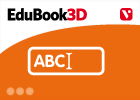
Initial evaluation 1 - The Atmosphere
EduBook Organización
- 1507 visitas
Complete the text with the missing words: When living things breathe, they take from the air. When plants make food, they take in from the air and return to the atmosphere in a process known as .
-
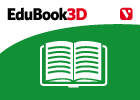
Vertebrates
EduBook Organización
- 1 lo usan
- 7885 visitas
What are vertebrates? Vertebrates are animals that have bones and a spinal column. They also have a head, torso and limbs. Groups of vertebrates We can classify vertebrates into five groups: Mammals…
-
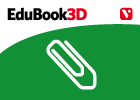
Vertebrates
EduBook Organización
- 6595 visitas
What are vertebrates? Vertebrates are animals that have bones and a spinal column. They also have a head, torso and limbs. Groups of vertebrates We can classify vertebrates into five groups: Mammals…
-
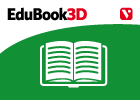
Summaries - Living things
EduBook Organización
- 4712 visitas
1. Characteristics of living things Living things or organisms are different from non-living things because: They are active: they do things that help them to survive and reproduce. They are sensitiveto…
-

Final self-evaluation 11.08 - The Animal Kingdom (II). Vertebrates
EduBook Organización
- 4619 visitas
Are the following sentences true or false? Reptiles have waterproof skin. Reptiles breathe through gills. A fish's swim bladder gives it information about its surroundings in the water. Birds have…
-
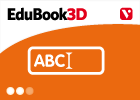
Complete. Fish
EduBook Organización
- 3595 visitas
Complete the sentences with the missing words: Fish breathe through . Fish reproduce through external fertilisation ( fish) or internal fertilisation (viviparous fish). The protects the gills of bony…
-

Learn to calculate your lung capacity
EduBook Organización
- 3150 visitas
When we take a deep breath in and then breathe out as much air as possible, the volume of air exhaled is called the vital capacity of the lungs. After forced exhalation, the lungs still contain around…
-

Complete. Mammals' bodies
EduBook Organización
- 3007 visitas
Complete the text with the missing words: jump – diaphragm – limbs – lungs – cetaceans Mammals have four , originally with five toes, adapted to different lifestyles. Walking mammals use their…
-
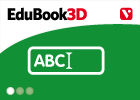
Final self-evaluation 03 - Living things
EduBook Organización
- 2768 visitas
Put these words in the correct spaces: activity living goes out Non-living die interact reproduce vital Living things do not do anything, a cloud for example. things are active: they are born, they…
Te estamos redirigiendo a la ficha del libro...













